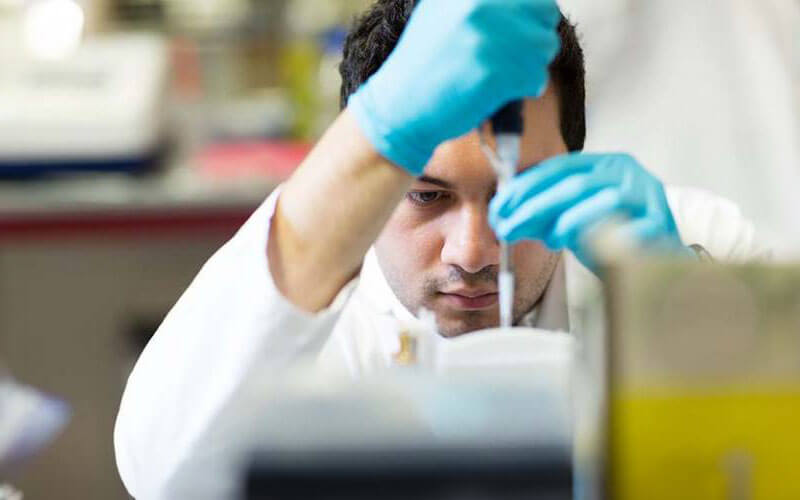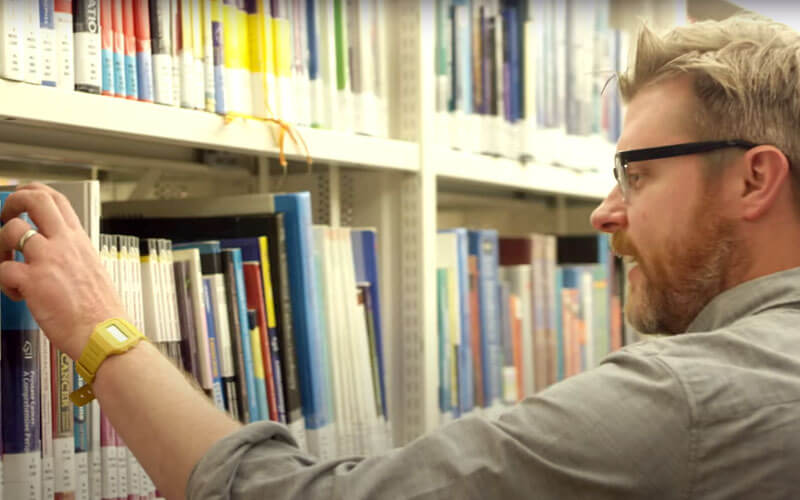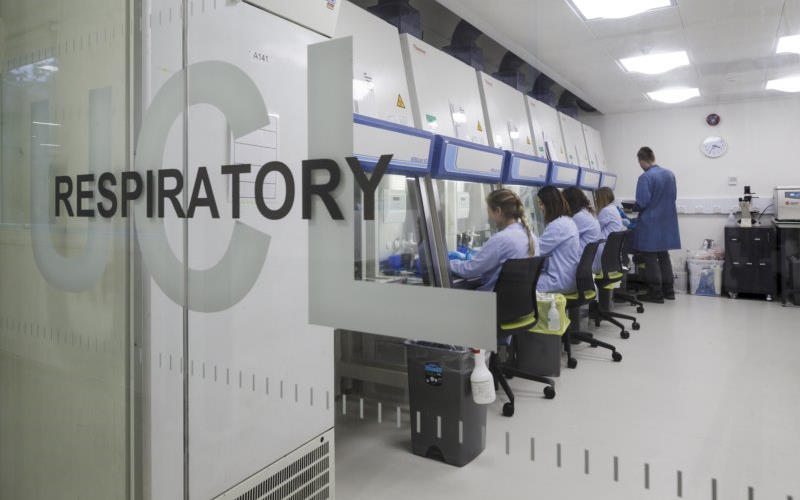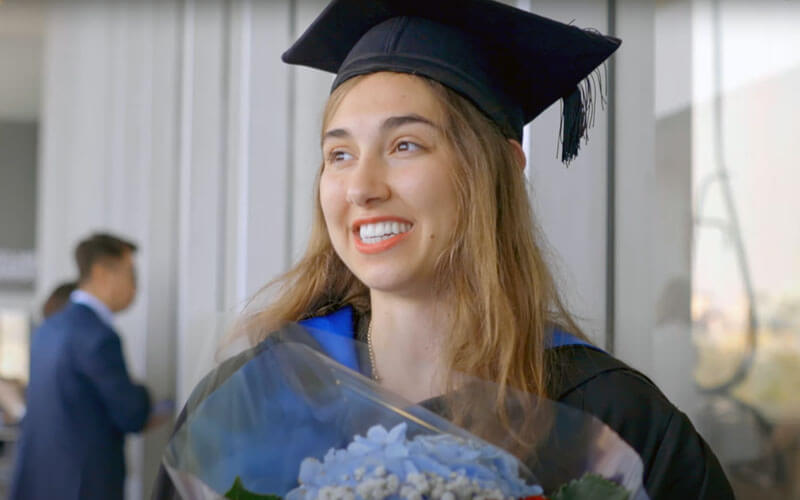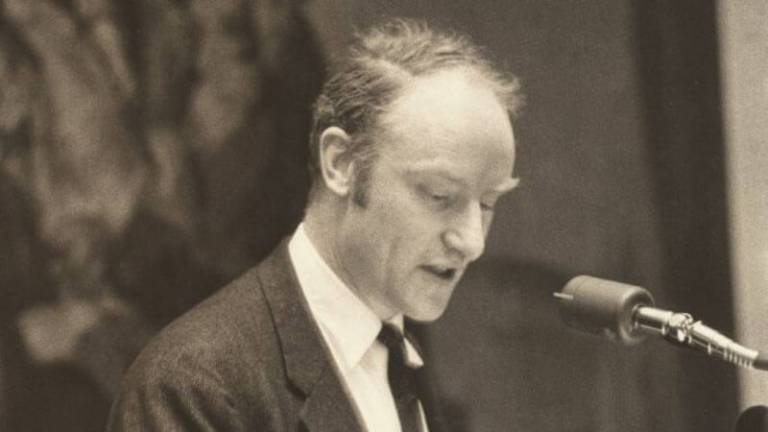Medical Science and Applications degrees
Undergraduate Virtual Open Day
Join a Virtual Open Day to find out more about our programmes and get the chance to ask your questions in a live session. Book your place today.

Our programmes
Join UCL's world-leading academic community working physical therapy, performing arts medicine, delivery of integrated pain services, multiomics data and respiratory medicine. Our courses explore the knowledge and practical skills in different areas of applied medical science. Our offer ranges from musculoskeletal science and nanotechnology to respiratory science and the applications of genetics and multiomics in medicine.
Applied Medical Sciences, BSc
Gain an in-depth understanding of how cutting-edge scientific research leads to improvements in clinical practice and patient outcomes.
- Full-time, 3 years.
- Subjects: Medical Science and Applications
Advanced Biomedical Imaging, MSc
Gain detailed knowledge of the imaging techniques that are shaping biomedical research and translational medicine around the world.
- Full-time, 1 year.
- Subjects: Medical Technology and Diagnostics; Medical Science and Applications
Cancer, MSc / PGDip / PGCert
Cancer MSc reflects the depth and breadth of research interests, from basic science to translational medicine.
- Full-time, 1 year.
- Subjects: Cancer; Medical Science and Applications; Medical Technology and Diagnostics
Clinical Drug Development, MRes / PGDip / PGCert
For graduates or professionals in biomedical science, this campus-based MRes provides an in-depth understanding of the very latest drug development methodologies.
- Full-time, 1 year. Part-time, 2 years.
- Subjects: Drug Development; Medical Science and Applications
Clinical Drug Development, MSc / PGDip / PGCert
This one-year MSc will deepen your understanding of cutting-edge research currently underway in clinical drug development.
- Full-time, 1 year. Part-time, 2 years.
- Subjects: Drug Development; Medical Science and Applications
Drug Design, MRes / PGDip / PGCert
You will study the latest methodologies and approaches to all aspects of drug design. These include drug discovery, computational and structural biology, and more.
- Full-time, 1 year. Part-time, 2 years.
- Subjects: Drug Development; Medical Science and Applications
Drug Design, MSc / PGDip / PGCert
On this full-time MSc, you will develop the essential skills needed in this sought-after field, while exploring robust research methods and the most up-to-date drug design techniques.
- Full-time, 1 year. Part-time, 2 years.
- Subjects: Drug Development; Medical Science and Applications
Genetics and Multiomics in Medicine, MSc
This highly regarded MSc in Genetics and Multiomics in Medicine offers you an unparalleled opportunity to specialise in this sought-after area of medical science.
- Full-time, 1 year. Part-time, 2 years.
- Subjects: Medical Technology and Diagnostics; Medical Science and Applications
Musculoskeletal Science and Medical Engineering, MSc / PGDip / PGCert
Explore a broad spectrum of the musculoskeletal system, including basic science and clinical aspects. Gain a holistic view of orthopaedic engineering, tissue engineering and regenerative medicine.
- Full-time, 1 year. Flexible, max. 5 years.
- Subjects: Surgery, Anaesthesia and Perioperative Medicine; Medical Science and Applications
Nanotechnology and Regenerative Medicine, MSc / PGCert
This MSc gives you a robust scientific understanding in nanotechnology and regenerative medicine, combined with a hands-on practical and translational focus.
- Full-time, 1 year. Flexible, max. 5 years.
- Subjects: Medical Technology and Diagnostics; Medical Science and Applications; Surgery, Anaesthesia and Perioperative Medicine
Pain Management, MSc / PGDip / PGCert
This specialist Pain Management MSc is aimed at clinical professionals from all backgrounds involved in the delivery of integrated pain services in primary or secondary care.
- Part-time, 2 years. Flexible, max. 5 years.
- Subjects: Surgery, Anaesthesia and Perioperative Medicine; Medical Science and Applications
Performing Arts Medicine, MSc / PGDip
This distance-learning MSc/PGDip provides specialised training for health professionals who want to be equipped to work with musicians, dancers, actors, circus artists and other performers.
- Full-time, 1 year. Part-time, 2 years.
- Subjects: Medical Science and Applications; Sport Medicine, Exercise and Rehabilitation
Performing Arts Medicine (by DL), PGCert
This distance-learning PG Cert is for people already involved in health services or health education who want to work with musicians, dancers, actors, circus artists and other performers.
- Full-time, 1 year.
- Subjects: Medical Science and Applications; Sport Medicine, Exercise and Rehabilitation
Physical Therapy in Musculoskeletal Healthcare and Rehabilitation, MSc / PGDip / PGCert
We explore the underlying scientific principles of physical therapy and give you first-hand experience of clinical application of rehabilitation techniques delivered by specialists at the Royal National Orthopaedic Hospital.
- Full-time, 1 year. Part-time, 2 years. Flexible, Max. 5 years.
- Subjects: Sport Medicine, Exercise and Rehabilitation; Medical Science and Applications
Precision Medicine, MSc
This MSc is an interdisciplinary course relating to the understanding of disease, and the technologies that detect, diagnose and treat them.
- Full-time, 3 years. Part-time, 5 years.
- Subjects: Medical Technology and Diagnostics; Medical Science and Applications; Cancer
Rehabilitation Engineering and Assistive Technologies, MSc
Focus on the design, development, and clinical application of novel rehabilitative and assistive technologies, working with assistive technology specialists from the Aspire Create team.
- Full-time, 1 year. Part-time, 2 years. Flexible, Max. 5 years.
- Subjects: Sport Medicine, Exercise and Rehabilitation; Medical Technology and Diagnostics; Medical Science and Applications
Respiratory Clinical Science, MSc / PGDip / PGCert
Set yourself up to work at the highest levels of respiratory medicine. This MSc focuses on studying the scientific and clinical basis of respiratory diseases.
- Full-time, 1 year. Part-time, 2 years.
- Subjects: Cancer; Infection and Immunity; Medical Science and Applications
Sports Medicine, Exercise and Health, MSc / PGDip
For clinicians who want to gain a deeper understanding of sports medicine, sports injuries, and exercise medicine. Also has a distance-learning option.
- Full-time, 1 year. Part-time, 2 years.
- Subjects: Sport Medicine, Exercise and Rehabilitation; Medical Science and Applications

Why study Medical Sciences and Applications at UCL?
Understanding the different mechanisms of human disease and physiology is essential to develop new diagnosis and treatment methods. At UCL, you can learn from leading academics and focus on real-life clinical case studies. Benefit from an extensive range of scientific, clinical, and educational expertise and access to world-class training, facilities, and equipment. Find out more about studying medical science and applications in London.
Bursaries available
The Division of Medicine offers bursaries for master's courses including Advanced Biomedical Imaging, Clinical Drug Development, Genetics & Multiomics, Precision Medicine and Respiratory Clinical Science.
UCL offers a Master's Bursary and Master's Scholarships worth up to £15,000 for those from lower income backgrounds to study a taught master's degree.

Careers
Our medical science and applications degrees will equip you with a real advantage when entering a competitive careers market. Graduates are eligible for a wide range of UK and international career opportunities and are well-equipped for further studies such as a PhD.
Depending which programme you choose, you will be able to pursue a career in academic and industrial research or to become an allied health professional.
Many of our graduates will gain transferable laboratory skills alongside critical thinking, which are needed to pursue a career in the scientific or clinical research. Others will develop specialist knowledge in the application of drug sciences, respiratory clinical science, engineering for physical therapy or rehabilitation, or specialist techniques in sport, exercise and performing arts support.
“I thought it was awesome to study a course that was the fusion of science and medicine. The course here was perfect for me.
I had a whole host of opportunities here. There are friends I know I’ll have for a lifetime, and the staff work at the forefront of hospitals, facing all different health crises in the city.
I’m starting a Master of Science and Biotechnology at Brown University, and then hopefully going into consulting or perhaps a PhD further down the road.
Rudy Utzschneider
BSc Applied Medical Sciences.
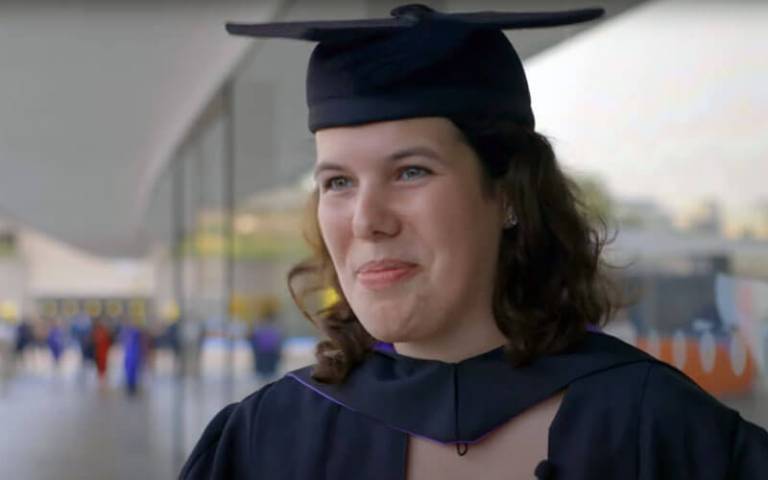
Our research in Medical Sciences and Applications
As a global leader in medical and biomedical research, UCL designs innovative courses for clinicians and scientists that meet new patient and industry needs. These are led by some of the greatest scientific minds, so you get a research-based learning experience. We encourage networking with world-leading scientists, new biotechnology industries and clinicians and promote research output and publications.

AI simplifies lung cancer risk prediction
Machine learning models to identify the simplest way to screen for lung cancer have been developed by researchers from UCL and the University of Cambridge.
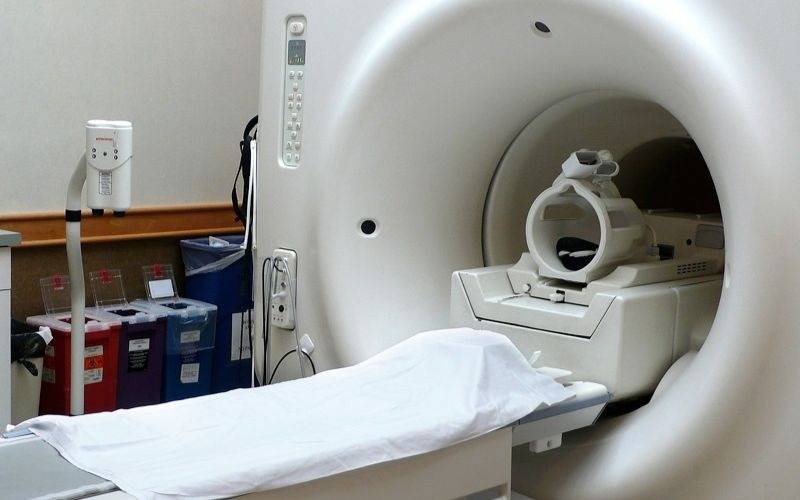
Improving MRI scans for cancer screening
A new study from UCL and UCLH has identified simple ways to treble the number of MRI scans of optimal diagnostic quality for prostate cancer screening.
Our teaching leads
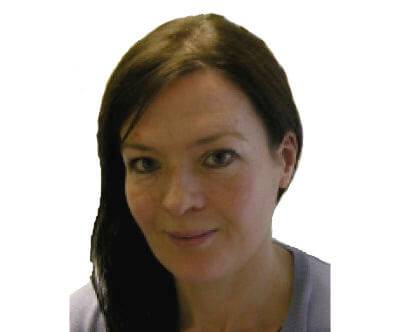
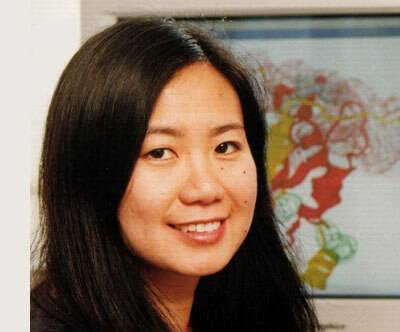
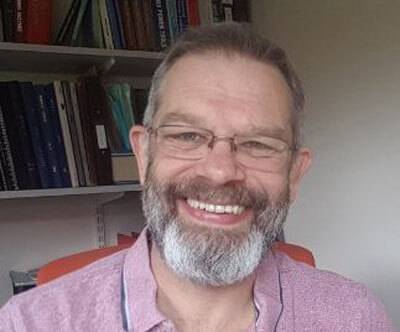
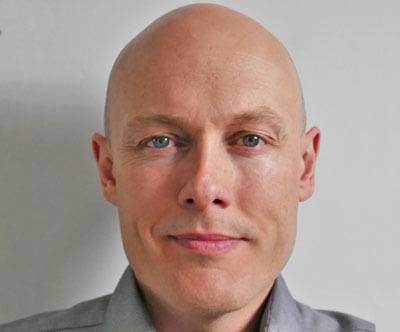
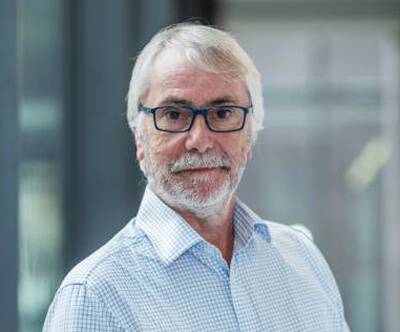
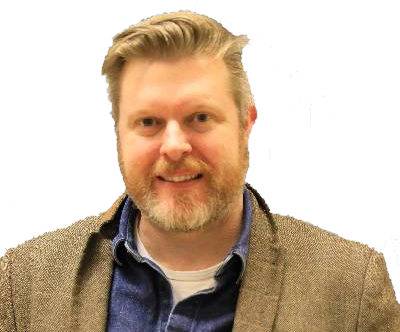
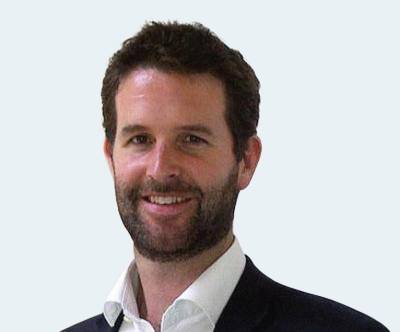
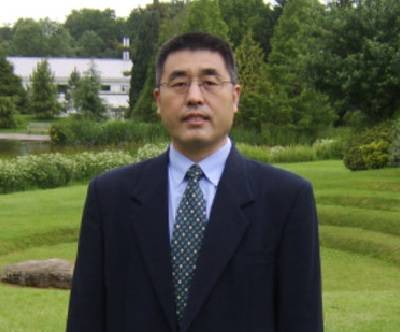
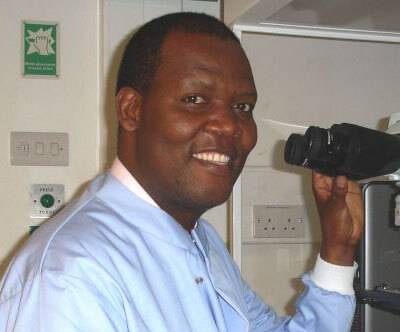
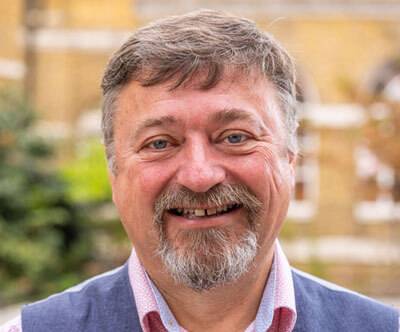

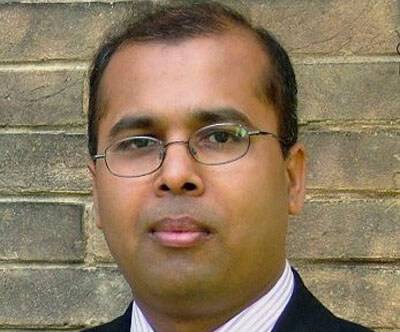
Dr Thiru Surentheran
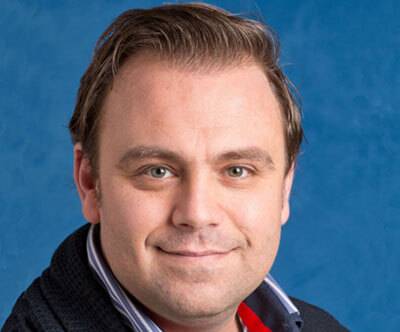
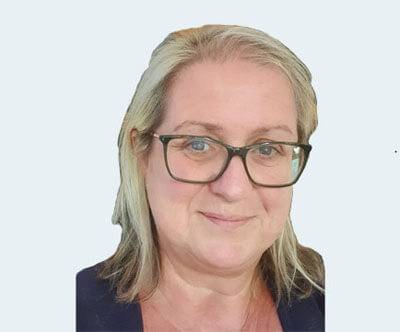
Dr Hara Trouli
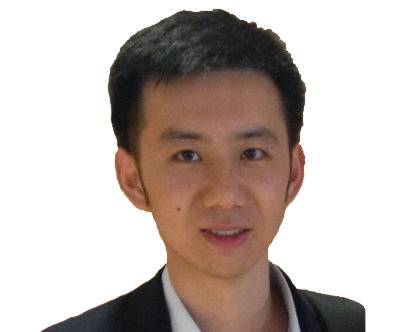
 Close
Close


